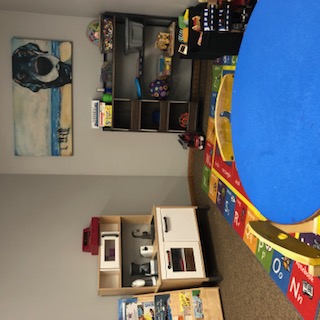Supervised Vistation Services
Supervised visitations most often occur when a parent is only allowed to visit his or her child under the supervision of another neutral individual due to a court order. Visitation is essential for a child’s well-being. The primary purpose of visitation is to maintain the parent-child attachment, reduce a child’s sense of abandonment, and preserve their sense of belonging as part of a family and community. A child needs to see and have regular contact with their parent(s) and siblings, as these relationships are the foundation of child development.
Supervised Visits Elk River MN
Supervised visitations provide an opportunity for parents and child(ren) to maintain contact with one another in a structured environment that is both safe and comfortable. Our facility is designed to be a safe, child-friendly, and welcoming place for parents to spend time with their child(ren).





Our services to counties
Main Street Family Services provides supervised visitation and parent education services for families working with child protection from counties throughout the state of Minnesota. We provide a safe space where parents who need supervised visitation can spend quality time with their children. Our staff are professional, educated, and ready to support the needs of families walking through this challenging time. We focus on supporting the county’s efforts for safety, well-being, and permanency and addressing the things needed for reunification.
County Referrals
We serve counties from across the state of Minnesota with supervised visits and parenting education. We occasionally provide assistance with transportation when needed. If you would like to make a referral, please fill out our form and return it to administrator@mainstreetfamilyservices.org
Our services for private pay visiting parents
We provide supervised visitation services for parents involved with family law and has a court order for supervised visitation. We understand that this is a difficult time. Our goal is to allow you to maintain a relationship with your child/ren in a safe and home-like environment. All of our processes and procedures are designed with your child’s best interest in mind. You will find our staff to be professional, educated, courteous, and ready to walk through any situation with you.
Private Pay Visiting Parent
Custodial parent paperwork and orientation
As a custodial parent, it’s natural to feel mixed emotions when dropping off your child for a supervised visit at a visitation center. Main Street Family Services has created a safe space where your child can maintain a relationship with the other parent, which is crucial for their emotional well-being.
Custodial Parent
To support you and facilitate a smooth process, we provide an orientation for all custodial parents to explain our rules and expectations and show you our facility. Please fill out the intake paperwork and we will schedule your orientation.
Please return the completed form and send it to administrator@mainstreetfamilyservices.org
Are you in need of supervised visitation services? If you or someone you know is in need, please inquire about our supervised visitations using the link below.
Visitation Helps Maintain Family Relationships
Visitation facilitates permanency planning, promotes timely reunification, and helps in the decision-making process to establish alternative permanency plans. Visitation maintains and supports the parent-child relationship necessary for successful reunification.
Visitation is vital to maintaining family relationships and cultural connections. Maintaining family connections has life-long significance for a child. Regular visitation maintains relationships with siblings and others who have a significant role in a child’s life.
Read More
Research on parental visits with children in foster care reveals that the visitation frequency significantly impacts child well-being and positive outcomes. Children in foster care who were visited frequently (once a week or once every two weeks) exhibited fewer behavioral problems than children who were visited infrequently (once a month or less), or not at all. Overall, children who had frequent contact with their parent(s) showed less anxiety and depression than children whose parents’ visits were either infrequent or nonexistent. (Cantos & Gries, 1997)
Regular Parental Visits Benefit Foster Children


Children in foster care who were visited frequently by their parent(s) were more likely to have higher well-being ratings, adjust better to placement, be more likely to be reunified with family and experience shorter stays in foster care. (Hess, 2003) Children in foster care who saw their parent(s) less than once a month felt they suffered due to not maintaining contact with their birth parent(s). (Kufeldt & Armstrong, 1995)
THE ABSENCE OF REGULAR AND FREQUENT PARENT-CHILD VISITATION OR CONTACT MAY HAVE SERIOUS CONSEQUENCES FOR BOTH A CHILD AND PARENT(S). WITHOUT VISITATION, THE RELATIONSHIP CAN DETERIORATE, AND BOTH CAN BECOME EMOTIONALLY DETACHED. WHEN PARENT-CHILD ATTACHMENT SUFFERS, REUNIFICATION BECOMES MORE DIFFICULT.
Some benefits of parent-child visitation:
- Supports parent-child attachment
- Eases the pain of separation for all
- Maintains and strengthens family relationships
- Reassures a child that their parents/primary caregiver are alright and helps the child to not blame themselves for placement
- Supports the family in dealing with changing relationships
- Motivates parent to make positive changes in their life by providing reassurance that the parent-child relationship is important for a child’s well-being
- Provides opportunities for parent(s) to learn and try new skills
- Supports a child’s adjustment to the foster home
- Enables the parent(s) to be active and stay current with their child’s development, educational and medical needs, church and community activities
- Provides opportunities for parent(s) to assess how their child is doing, and share information about how to meet their child’s needs
- Assists in the assessment and decision-making process regarding parenting capacities and permanency goals
- Reduces the time in out-of-home care
- Increases the likelihood of reunification
: Cantos, A. L., & Gries, L. T. (1997). The effects of parental visits on foster children: A review of research. Child welfare, 76(4), 488-508.


